In this diagram, we see a wide range of salinities (0.1 to 32), wave processes that dominate at the mouth of the estuary, tidal processes that occur in the middle region, and river or fluvial.. A steep, V-shaped cross-profile is typical in the upper course. This is because of vertical erosion by the river combined with weathering and mass movement of the valley slopes. In the middle course, the river is flowing through lower-lying land. The gradient is gentler, so the river begins to meander (bend).
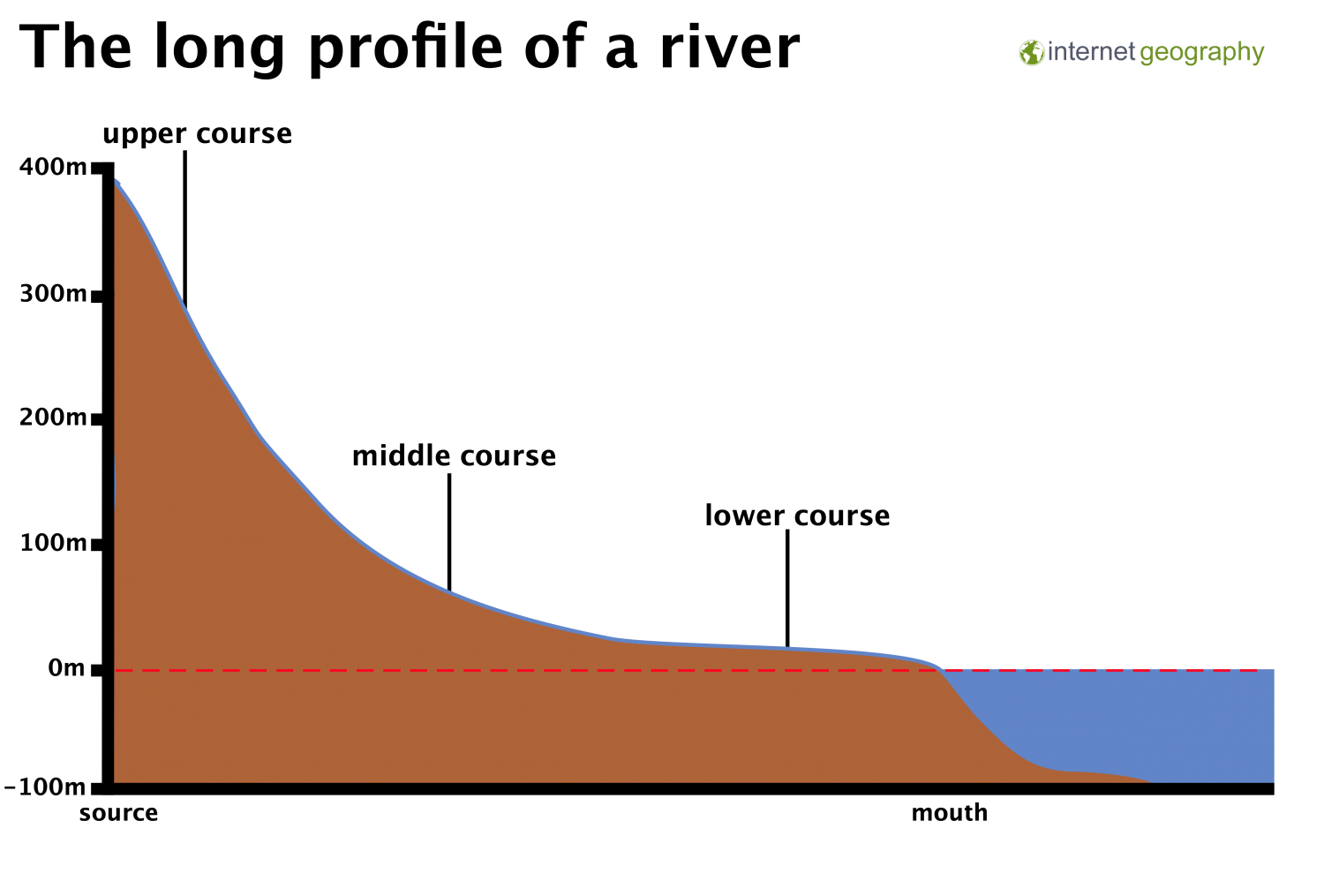
Geography River Diagram
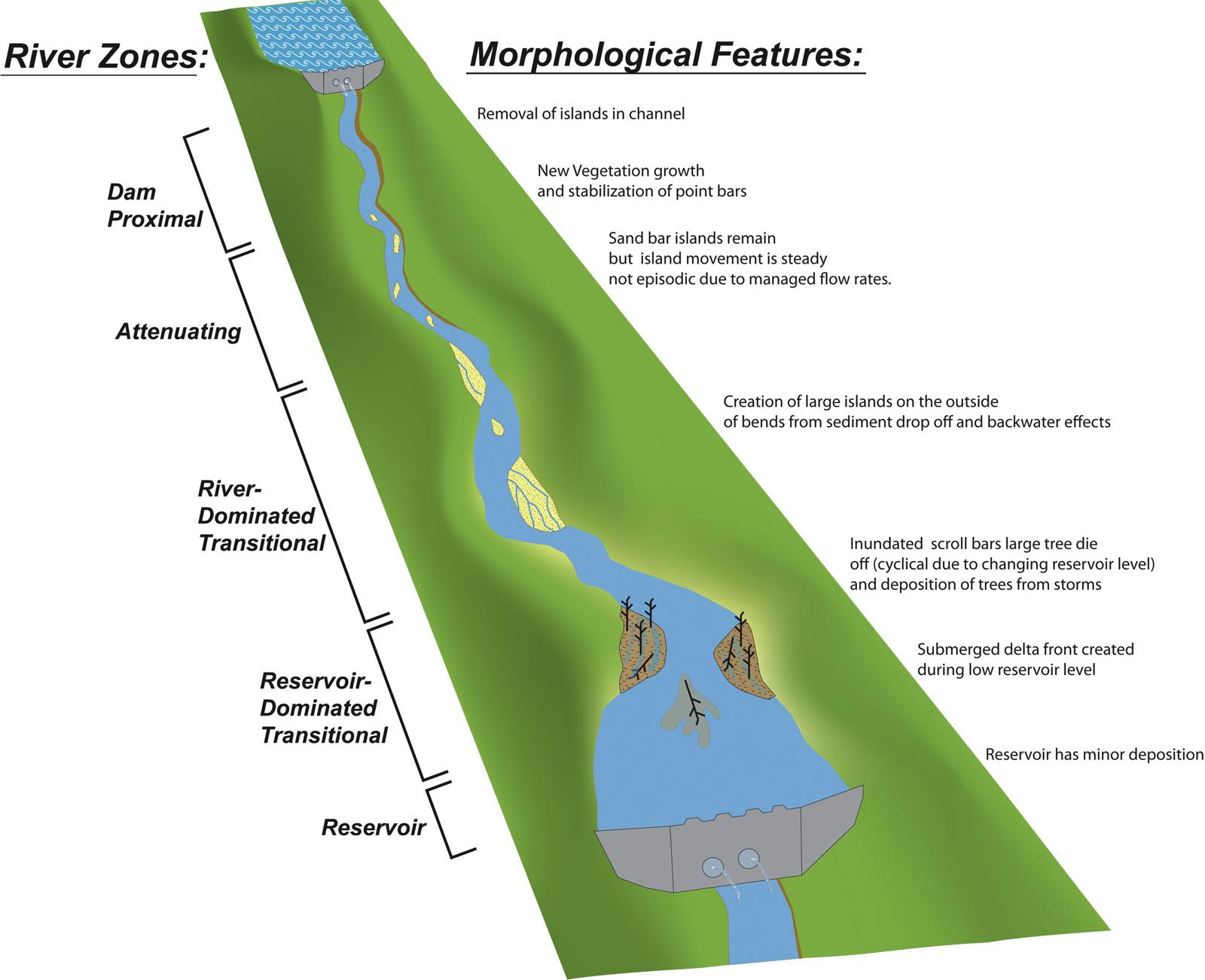
Parts Of River Diagram
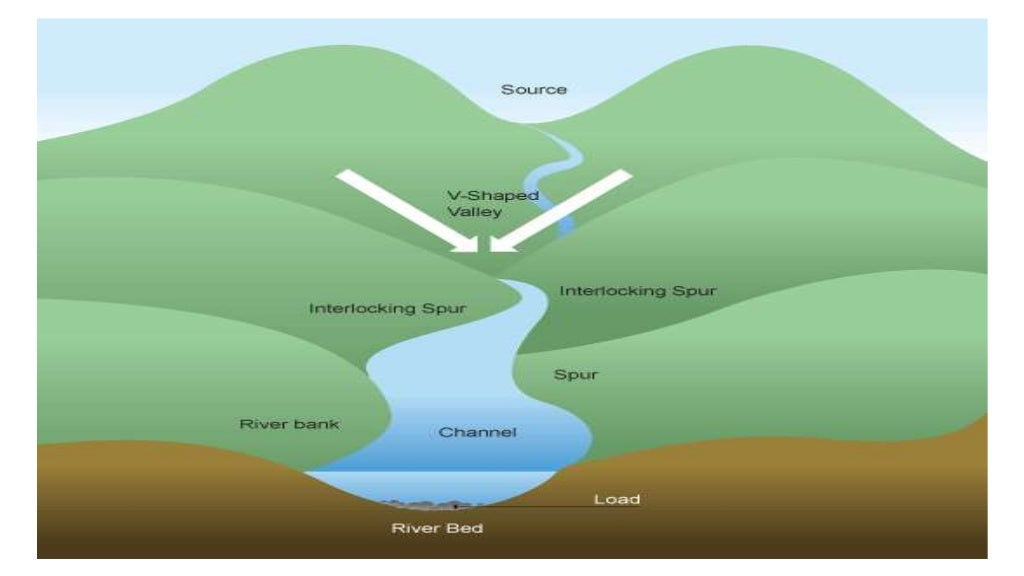
Stages of a river's upper course
Geography River Diagram
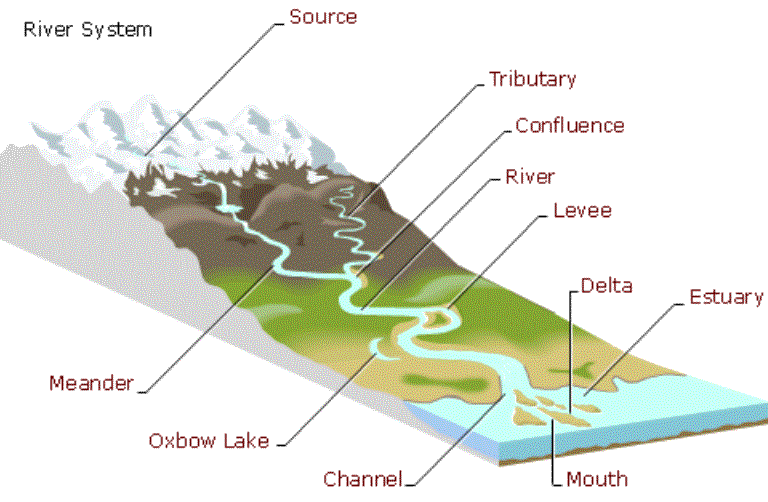
2.1 River Features GEOGRAPHY FOR 2020 & BEYOND

Images shows change variations of the river mouth in different periods. Download Scientific
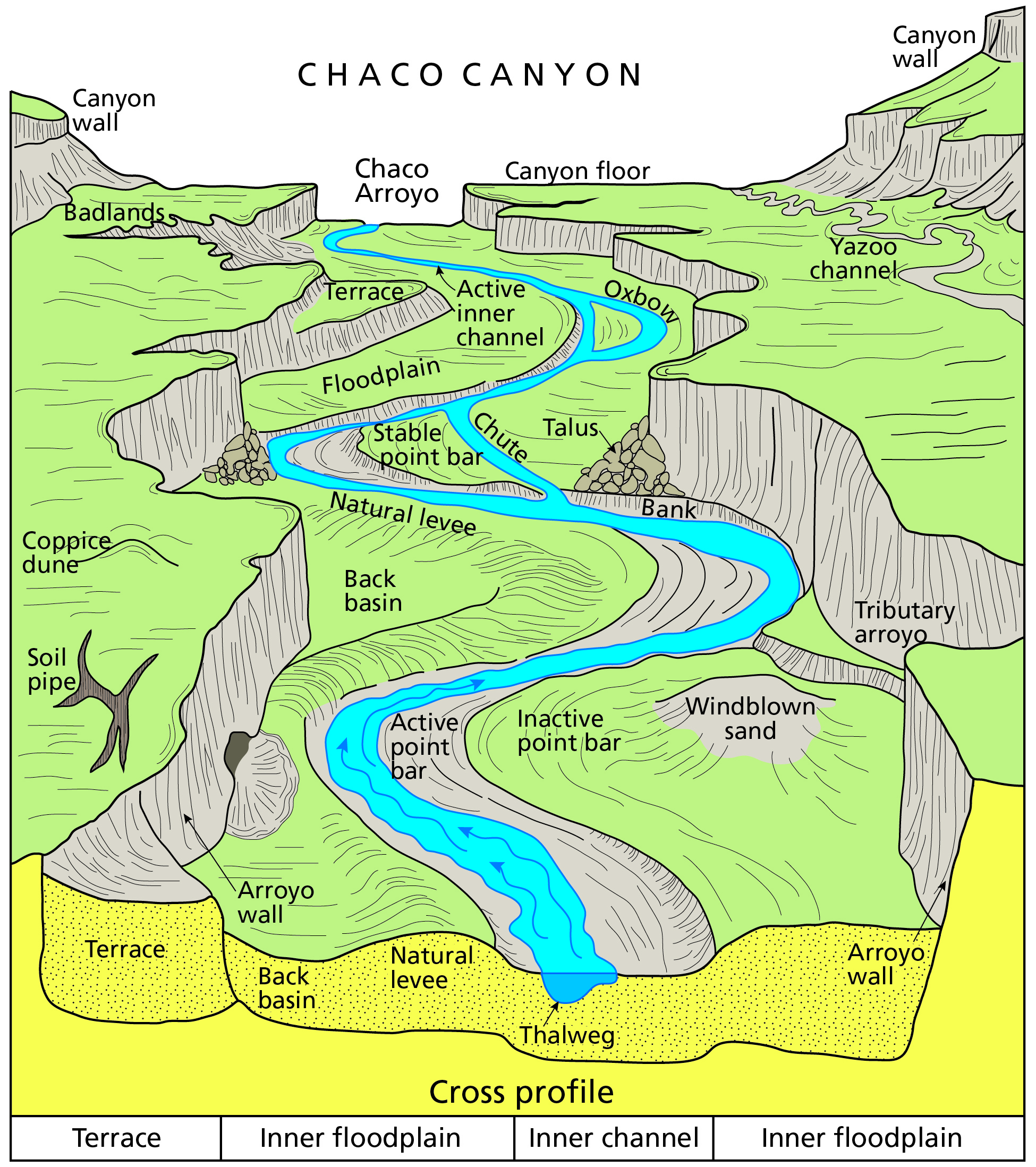
Describe the Parts of a River System
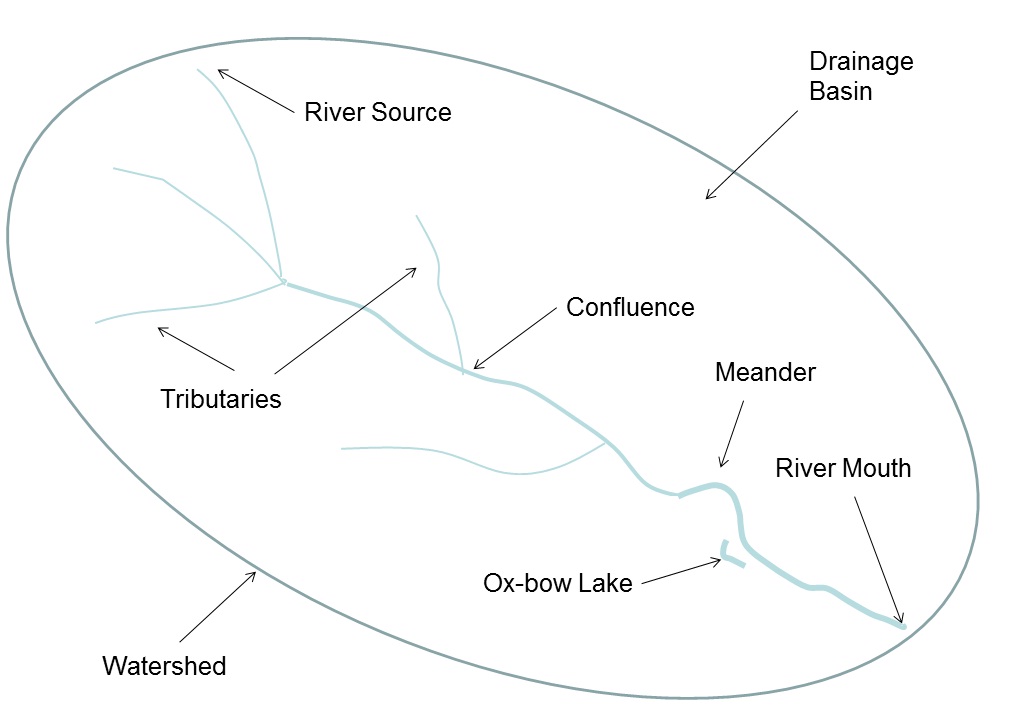
Geography & Cartoon Blog Rivers The Different Parts of a River

the anatomy of a river system is shown in this diagram, with labels on it
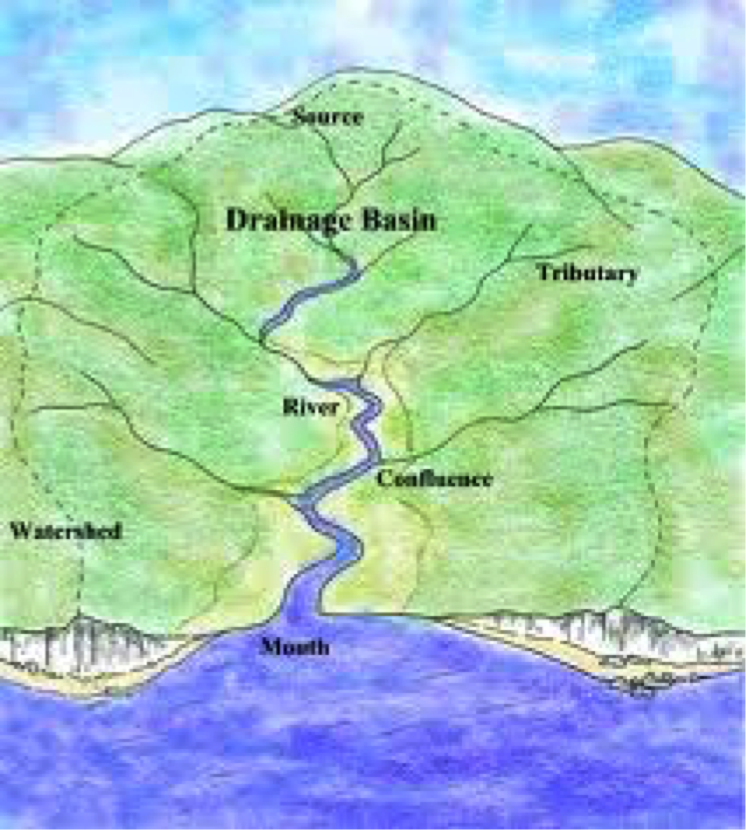
Map clipart river mouth, Map river mouth Transparent FREE for download on WebStockReview 2024
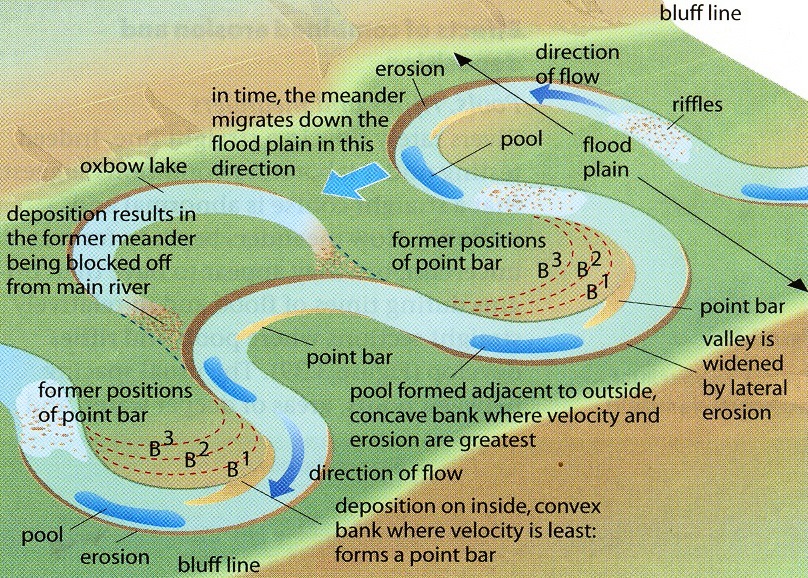
The Long profile, Channel Characteristics and river landforms Rivers, Floods and Flood Management

River systems and drainage basin educational structure vector illustration Geography lessons
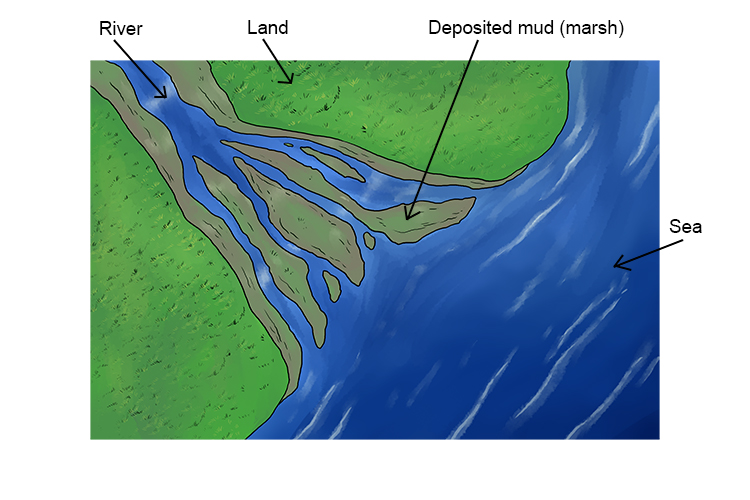
Estuary Geography Mammoth Memory Geography
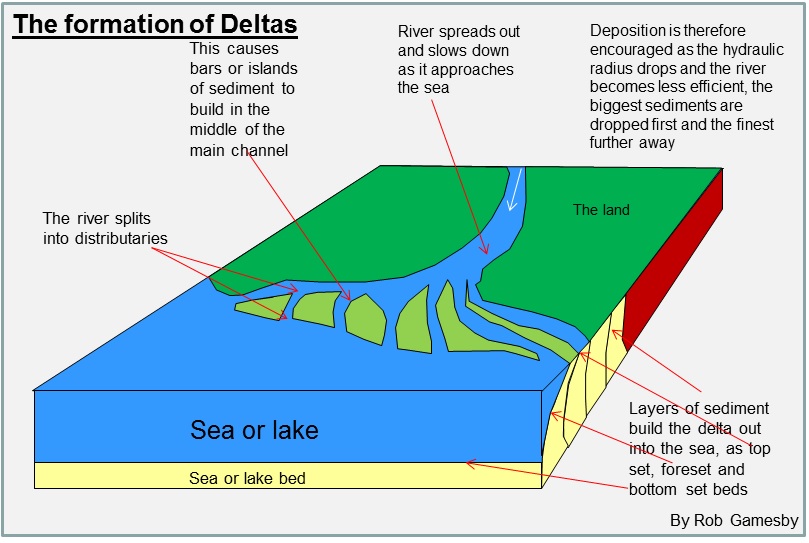
Physical Chemistry 79985 Delta is generally formed when riveraskIITians
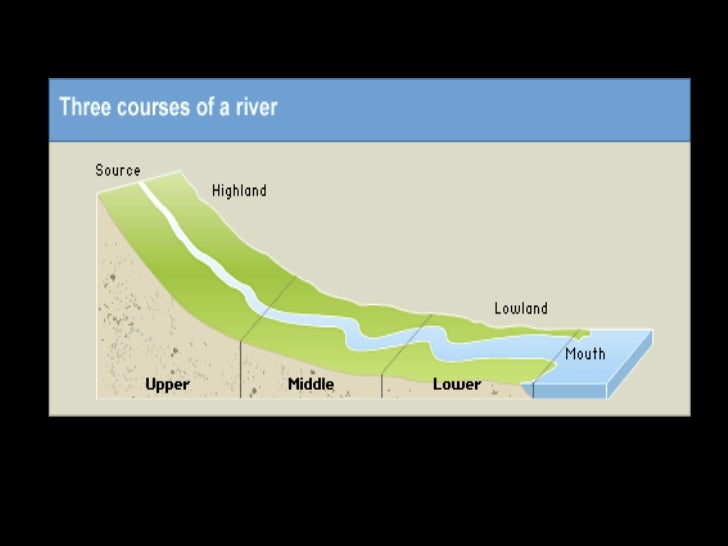
Stages Of A River
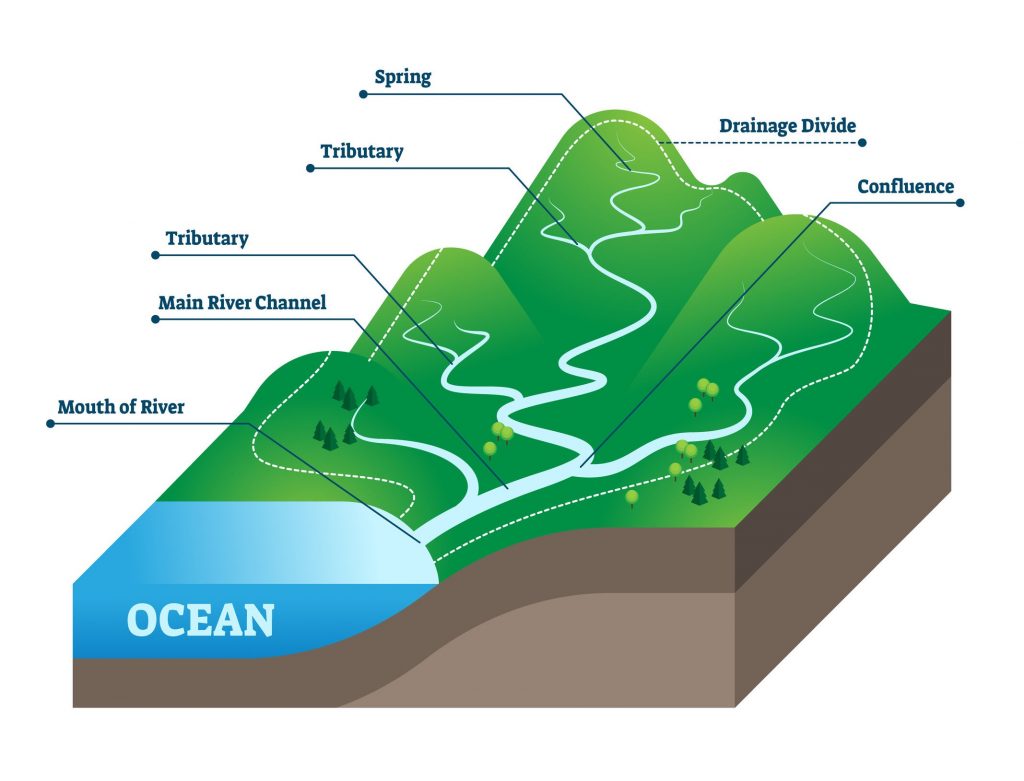
Rivers flow from the highest point in the landscape to the lowest.

Typical morphology of wavedominated estuaries (after Dalrymple et al.... Download Scientific

river diagrams

Characteristics of Rivers GCSE Geography B Edexcel Revision Study Rocket

The Anatomy Of A River Wekiva Island
The mouth of a river is where the river meets and flows into a larger body of water, like a lake, sea, or ocean. It's the end point of the river where its water mixes with the saltwater or the water of the bigger body. The mouth of a river can look different depending on the river's size and the area around it.. A river is a moving body of water that drains the. In this diagram, the river is moving around the rocks.. The majority of rivers then eventually join the sea at what is called it's mouth.